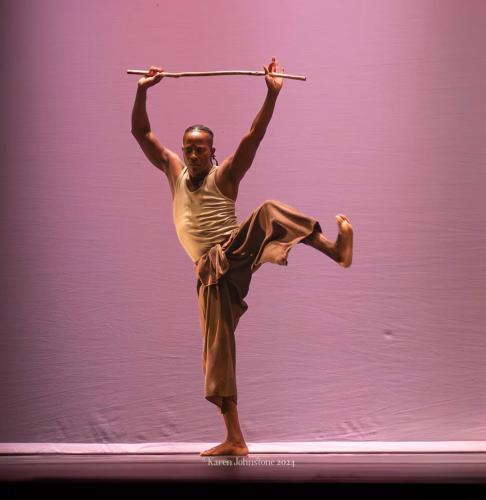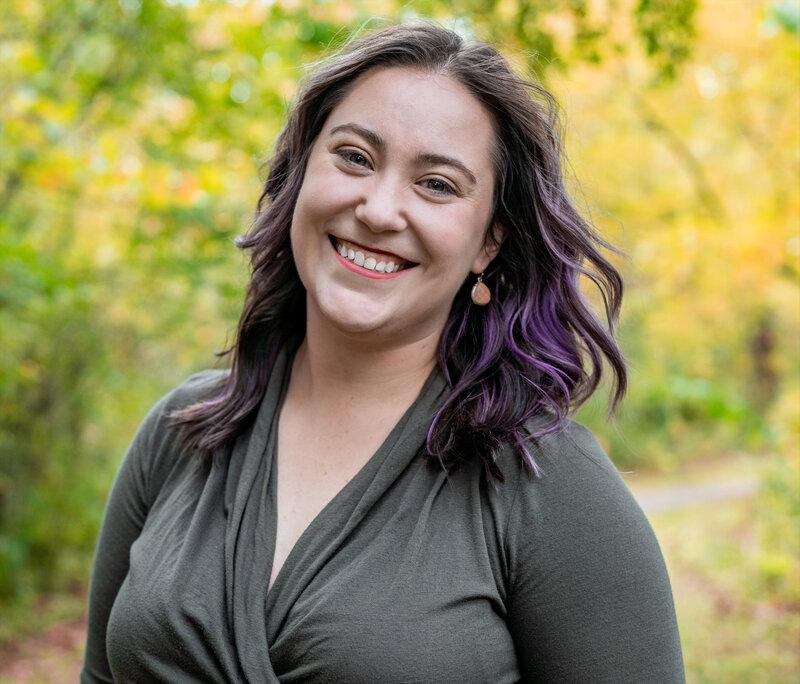
Community Dance alumni reflect on impact of program

A recent addition to the list of OHIO College of Fine Arts graduate programs is the Master of Arts in Community Dance. The first program of its kind in the country, the MA in Community Dance began in 2020 and offers students the opportunity to prepare for careers in dance that will involve both professionals and non-professionals working together, often in community focused contexts.
The first few cohorts of Community Dance alumni are now entering or resuming their careers in a number of different disciplines. One of the program’s recent graduates is Maggie Kersten, the creative director of Factory Street Studio in Athens. Before her time in the Community Dance program, Kersten worked for the Pickaway County Family YMCA where she rediscovered her love for dance.
“I was doing before and after schoolwork with children and when we would have days where we were stuck inside I would try to incorporate dance a little bit and I realized just how much I loved it and how little dance exposure children get,” Kersten said.

Another recent alum of the program, Megan Tedrick, also pursued the Community Dance program in part because of how it applied to her work with education.
“Dance is just as valuable an education tool as anything else we do in school, and for a lot of students it can be a pathway to understanding the world in ways that traditional teaching methods fall short with, and it can be a wonderful way to reinforce a lot of what’s happening in a ‘gen-ed’ classroom,” she said.
Tedrick is the current Education Programs coordinator for Ballet Met in Columbus. In addition to its applicability to her interests, Tedrick chose the Community Dance program at OHIO because it allowed her to continue living in Columbus with her family while furthering her aspirations in the field.

“You’re watching people (guest lecturers) who are taking all these experiences, they’re stabilizing themselves once they figured out what they want to do or where they want to hone their skills, and so this degree program was really helpful in showing that a lot of dance artists follow that trajectory and then also how to pull that off yourself,” she said.
Ashley Osborne, the founder of WellnessMovement Solutions in Los Angeles, came into the Community Dance program with a set of goals that would allow her to help those pursuing dance outside of a traditional dance trajectory.
“I really just wanted to be a person who is confident and informed and educated and really well-versed and knowledgeable about leading spaces that are focused on dance but open to people who wouldn’t necessarily consider themselves dancers,” Osborne said.
While working toward her goals in the program, Osborne felt encouraged to consider dance in a broader sense than the confines of only considered it a performance art.
“It doesn’t have to be this space where you are training to be on stage … it can be a space that is … healing, it’s a human communication, it’s just a way that we can express ourselves,” Osborne said.
This inclusive lens through which the program is taught, one which encourages the idea that anyone can benefit from exposure to dance and can pursue it in a unique way, is part of what encapsulates the first half of the degree’s title.
“It’s really about taking dance and applying it to any type of population that you want,” Osborne said.
Kersten hopes to build community by giving “more of an opportunity to people to experience it (dance) who might not be able to afford to pay for classes or … there might be barriers for them to take classes.” She also believes the features of the program design itself exemplifies the lessons it teaches.
“One thing I really appreciated about this program was that because it is a smaller program you really get to know your peers, and I think that having that sense of community was perfect for this setting,” Kersten said.
Another member of the degree’s community is Deon Baptiste, an educator in Trinidad and Tobago.
“When they said community dance, because I’m coming from Trinidad and Tobago where a lot of our dance practice is based within the community, that stood out to me so I took up the offer,” he said.
Through the program, Baptiste noticed differences between the Community Dance program at OHIO opposed to a traditional dance graduate program.
“It’s more…interactive, whereas in a normal master’s program you’ll have less…mixing of subjects, and of people,” Baptiste said.
Osborne echoes that emphasis on real world application within the program, saying that her work allowed her to practice “embodying what I was intellectualizing at the same time.” She also got the chance to do data research within the field and explore unusual and original corners of the field.
“It’s not a space where you have to feel like you are the best dancer…it is going to be more about what are your values around dance, what are the larger benefits,” she said.
In the Community Dance program, Kersten found value in expanding her conception of dance and having the freedom to engage with the art as she chose to.
“There’s so much to learn and it’s a really great opportunity to see what else is out there in the field of dance besides what we’re taught when we’re in school,” she said. “This is obviously still school but it’s kind of that next level where you really just get to explore and discover new things.”
